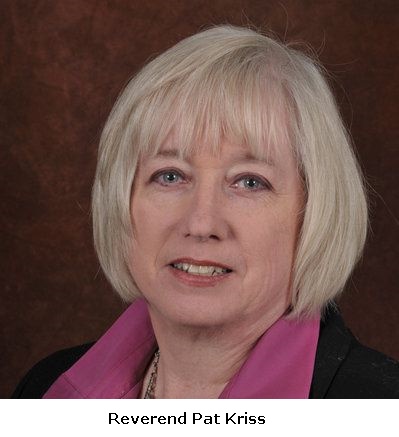Two Reluctant Ministers Who Tried to Stop Human Suffering
 (Posted January 12, 2022)
(Posted January 12, 2022)
“Let the first act of every morning be to make the following resolve for the day:
- I shall not fear anyone on Earth.
- I shall fear only God.
- I shall not bear ill will toward anyone.
- I shall not submit to injustice from anyone.
- I shall conquer untruth by truth. And in resisting untruth, I shall put up with all suffering.”
--Mahatma Gandhi
Join Our Online Sunday Service
You are welcome to join our Sunday service on Zoom at 10 a.m. Click here to participate in the live service.
Our worship services will be 100 percent virtual for as long as the number of COVID-19 cases in Danbury remain elevated.
These services will be livestreamed to Facebook, where you may view them at a date and time more suited to your convenience.
On this particular January weekend, our attention turns to two particular men. One is Jesus in the gospel, where we find him uncharacteristically reluctant to perform his first miracle by turning water into wine at a wedding. The second is the man for which this weekend is named: Reverend Martin Luther King, Jr. He, too, was reluctant about his career path. The son of a “rock star” preacher father, he knew he could never reach that level and only wanted to be a religious researcher and teacher.
Why were they so reluctant? Despite the divinity of one and the intellect of the other, both shared one thing in common: They were human.
An End to Human Suffering
The other thing Jesus and Martin shared in common was the soul-deep urge to help stop human suffering. After the miracle at Cana, Jesus went on to perform six more miracles as a sign of who he was, each of them ending types of human suffering.
For Martin, who was thrust into a fight for racial justice that he initially had little interest in, he lent his presence, his voice and his very body to the cause. He taught people of all races that evil cannot stand against love and justice, even if it ends one’s life with a bullet.
When Bad Things Happen to Good People
But that brings us face to face with some questions we usually avoid pronouncing out loud:
If our God is all-powerful, why doesn’t God simply put an end to suffering?
If there is an all-just, all powerful God, how can God stand by, and watch humans suffer?
What, if any purpose does suffering serve?
This topic, known among theologians as theodicy, will be the focus of our talks on Wednesday, January 19, at 2 p.m. on Zoom. If you’ve never been to our gathering but would like to be there, just let us know and we will include you to receive whatever readings we will use.
This topic in particular may not hand you a set of answers to these questions, but we can guarantee that it will expand your mind and perspective. Come join us Sunday at 10 a.m. for our online service, and then at midweek for a lively discussion.

